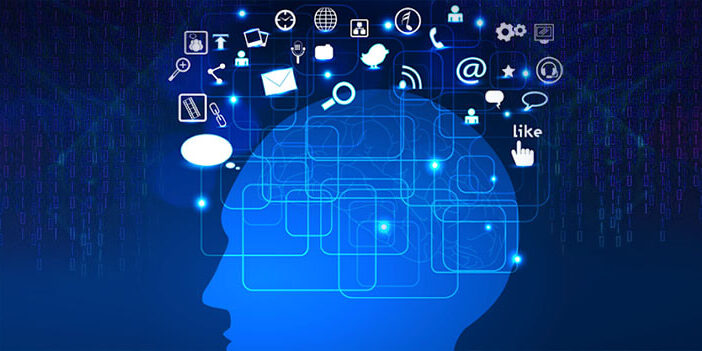
The digital upheaval lingers to change our realm and our presence. “Hi Siri”, “Ok Google” – We use these directives so often to search for something randomly on our phones.
The expansion of technology has confirmed that it theatres a dynamic character in our lives. We exercise it throughout our day, in our everyday mundane. Presently, our existence has stirred online because of the COVID 19 pandemic. Plus social distancing has compelled virtual intimacy.
Reshaping the Realm
Muddling through the everyday hassles of our life -demands as well as following our desires in entertaining activities, seems impossible without gadgets and internet connection. Technology has full-grown to be vital for our civilization.
Digital Media and Human Brain
Brain imaging techniques display real morphological modifications in initial childhood and in youth that are related to exhaustive digital media practice.Technology use deceptively shakes brain functions, for instance – visual insight, language, and reasoning. This sensation expresses our dependency on technology, which is increasing daily.
Every age group now have their crowns down, are addicted to gadgets, and are sightless to their environments. People are intermingling with their devices but not with each other.
However, the worries about screen time and struggle to keep us away from ogling at our devices came to an abrupt expiration with the COVID-19 pandemic.Our individual, professional, learning, social, and political activities are relocated online. The motto of social distancing demands virtual closeness.
Technology and Mental Health Diagnosis
The application of technology for real-world medical benefits and the development of mental health is achieving acceptance, particularly by smartphone accessibility. This is actually filling up the treatment gap and accessibility shortage to dedicated psychotherapeutic care.
Research reveals that technology involvement has equal antidepressant effectiveness in comparison to in-person psychotherapy.
Technology has the abundant ability in emotional health assessment and cure, and the enhancement of individual psychological performance.
VR and Mental Health Cure
Many of the VR applications are still in research laboratory testing, however few of them are already creating their road to clinics and psychotherapists’ offices.
- VR treatments have been recognized effective across a series of disorders such as panic, schizophrenia, and anxiety.
- The convenient and affordable VR headsets make it possible for doctors to test navigational deficits in Alzheimer. The patient’s aptitude to search the right location, anticipated Alzheimer’s diagnosis with 93 % accuracy, in comparison to the writing test accuracy.
- PTSD patients with depression respond way better to VR exposure therapy, in contrast to other therapy procedures.
VR lets psychotherapists to make affordable, protected, quicker, organized settings inside a VR headset. The benefits of VR application as a medical assessment tool can drastically reform the topography of evaluation in mental health. Besides growing ecological strength, VR augments personalization, i.e VR experiences can be custom-made to match personal needs.
Altering Human Brains and Manners
How can digital technology have an emotional impact, in both adverse and optimistic ways?
The aptitude of the human brain to adjust to any variations plays an important role in producing functional changes persuaded by the practice of digital devices.
The straight evidence for the result of recurrent smartphone usage on the brain is provided by the demo of changes in cortical activity
Repetitive screen touch prompts the effect on the fingertips costing motor coordination skills.
For example, as revealed by functional magnetic resonance imaging (fMRI), general childhood experience with the “Pokémon” game affects the insight of visual objects even after the years.
Specifically, social media habit has a deep consequence; for instance, the teenager’s internet social circle size is diligently associated with brain anatomy changes as verified via structural MRI.
The effects of the Internet on the thought process and perception are:-
- Concentration ability on one task causing attention deficit-hyperactivity disorder (ADHD)
- Change in-memory processing for saving, storing, remembering information
- Change in social interaction such as opinion of social loneliness, the reduced emotive and social acumen, inferior reasoning, and disturbed sleeping patterns.
That is why it is crucial to practice digital media intentionally, artistically, and rationally.
Screen Time: Bonus or Nuisance?
Screen time has dissimilar effects for different individuals. Digital use can have together undesirable and progressive effects.
Technology merely does not “occur” to individuals.
People can outline the practices with technologies and the outcomes of that practice. Therefore, it is significant to change the attention to active, mindful usage of digital media, with the purpose to mend our lifestyle and profoundly bond with one another.
This has turned out to be more than important now. Because there is an amplified need, as a consequence of COVID 19, to practice technology in methods that fortify our interactions.
A great proportion of the world has been employing, learning, and mingling online for months, and several vital actions will remain virtual for the predictable future.
This time frame of social distancing has shed brightness on what we require from digital media and each other.
Fundamental Note
Who expends time? and what is essential with technology media? This indicates what must be the chief topic of interest.
So, digital media is not inherently decent or wicked: it relies on the usages and it can be applied by people in a negative and positive manner.
More relevant than ever, throughout and after COVID 19 times, digital must be taken advantage of to increase communication and improve private, professional, and social bonding; assuring equivalent opportunities for access.
